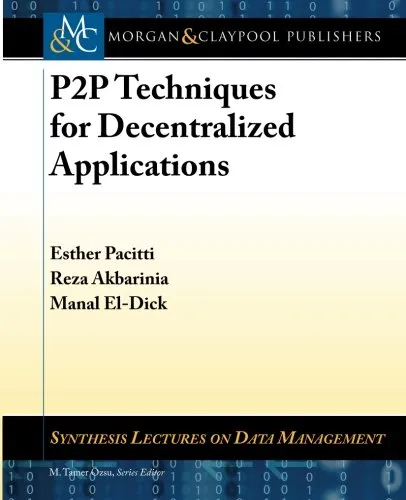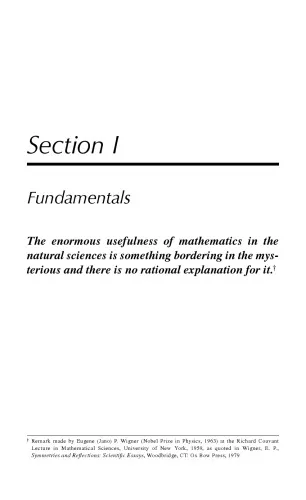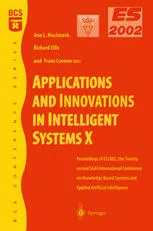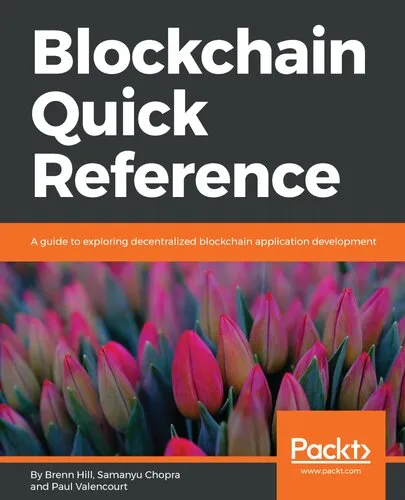P2P Techniques for Decentralized Applications
4.0
بر اساس نظر کاربران

شما میتونید سوالاتتون در باره کتاب رو از هوش مصنوعیش بعد از ورود بپرسید
هر دانلود یا پرسش از هوش مصنوعی 2 امتیاز لازم دارد، برای بدست آوردن امتیاز رایگان، به صفحه ی راهنمای امتیازات سر بزنید و یک سری کار ارزشمند انجام بدینکتاب های مرتبط:
کتاب P2P Techniques for Decentralized Applications یک منبع مهم و دقیق برای توسعهدهندگان، محققان و علاقهمندان به تکنولوژی Peer-to-Peer (P2P) و اپلیکیشنهای غیرمتمرکز (Decentralized Applications) است. نویسندگان این کتاب، Esther Pacitti, Reza Akbarinia و Manal El-Dick، با ترکیب علم نظری و تجربه عملی، اصول پایه و تکنیکهای پیشرفته مرتبط با این حوزه را به شکلی جامع مورد بررسی قرار دادهاند.
خلاصهای از کتاب
این کتاب ابتدا به توضیح مبانی شبکههای Peer-to-Peer میپردازد و چگونگی تکامل این فناوری از سیستمهای توزیعشده سنتی را تحلیل میکند. سپس مبحث Decentralized Applications، که به DApps نیز شناخته میشوند، با تمرکز بر معماری این نوع اپلیکیشنها و ابزارهای موجود برای توسعه آنها بررسی میشود.
نویسندگان مفاهیم کلیدی مانند scalability، fault tolerance، decentralization و consensus را مورد تحلیل قرار داده و با ارائه مثالهای واقعی از عملکرد سیستمهای P2P در دنیای واقعی به خوانندگان کمک میکنند تا تصویری عمیق از این تکنولوژیها بدست آورند. در ادامه، الگوریتمهای توزیعی، تکنیکهای امنیتی و حریم خصوصی که برای توسعهدهندگان حیاتی هستند نیز مورد توجه قرار گرفته است.
نکات کلیدی
- توضیح جامع مفاهیم پایه شبکههای Peer-to-Peer و مزایای آنها نسبت به معماریهای متمرکز.
- تمرکز ویژه بر استفاده از الگوریتمهای توزیعشده برای افزایش کارایی و قابلیت اطمینان.
- تشریح کامل معماری اپلیکیشنهای غیرمتمرکز و چگونگی پیادهسازی آنها با استفاده از ابزارهای مدرن.
- تحلیل مباحث امنیتی مرتبط با P2P و DApps، شامل مدیریت حریم خصوصی و حفاظت از اطلاعات کاربران.
- روشهای نوین برای مدیریت consensus و نقش بلاکچین در گسترش کاربردهای غیرمتمرکز.
نقلقولهای معروف از کتاب
“Decentralization is not just a technological choice; it’s a paradigm shift that empowers users and eliminates the need for trusted intermediaries.”
“Peer-to-Peer networks have the potential to redefine the way information is shared, secured, and utilized in a truly global context.”
چرا این کتاب مهم است؟
دنیای امروز به سمت غیرمتمرکز شدن در حال حرکت است، و تکنولوژیهایی مانند Blockchain، Cryptocurrency، و DApps در قلب این تحولات قرار دارند. کتاب P2P Techniques for Decentralized Applications اولین گامی است برای فهم عمیقتر این حوزهها و استفاده از پتانسیل عظیمی که این فناوریها برای جامعه و صنعت فراهم کردهاند.
این کتاب بهواسطه محتوای علمی غنی، ساختاری منظم، و ارائه مثالهایی از دنیای واقعی، ابزاری ارزشمند برای یادگیری و تحقیق در مورد مفاهیم غیرمتمرکز است. علاوه بر این، خواندن آن برای افرادی که در صنعت فناوری فعال هستند، میتواند مسیرهای جدیدی از فرصتهای شغلی و نوآوری ایجاد کند.
Introduction to "P2P Techniques for Decentralized Applications"
The era of centralized systems dominating the technological landscape is gradually fading. With the rise of decentralization, Peer-to-Peer (P2P) techniques have become the foundational framework for numerous innovative applications. "P2P Techniques for Decentralized Applications" serves as a comprehensive guide to understanding and leveraging these techniques to build next-generation decentralized systems. This book combines theoretical knowledge with practical insights to address challenges in scalability, privacy, security, and distributed consensus, enabling developers to design robust and efficient systems.
Written by experts in the field, the book bridges the gap between research and implementation. It is not only tailored for software engineers and system architects but also for enthusiasts and professionals seeking to understand the nuances of decentralization. Whether you are exploring peer-to-peer systems for the first time or looking to refine your understanding of advanced techniques, this book offers an in-depth exploration of concepts and tools reshaping the digital world.
Detailed Summary of the Book
At its core, this book delves into how P2P techniques enable decentralized applications to overcome the limitations of traditional centralized systems. It outlines the architecture of P2P networks and introduces the varied paradigms of decentralization, from blockchain-based systems to distributed file sharing and communication tools.
The book opens with an analysis of the challenges faced by centralized models, including bottlenecks in performance, higher costs, and single points of failure. This analysis is followed by an in-depth breakdown of P2P networks, including their design, functionality, and the advantages they bring to modern applications.
It further explores a wide range of case studies, such as decentralized marketplaces, social platforms, and file-sharing protocols, providing readers with practical examples of how P2P techniques are implemented in real-world applications. Each chapter is crafted to simplify complex concepts while ensuring technical depth, making it accessible for both beginners and experienced professionals.
The book emphasizes the importance of protocols and algorithms, such as Distributed Hash Tables (DHTs), consensus mechanisms, and routing techniques, showcasing how these elements come together to form the foundation of decentralized ecosystems. As the role of security in P2P systems cannot be understated, specific chapters are dedicated to addressing privacy concerns, secure communication, and data consistency in distributed settings.
Key Takeaways
- Understand the foundational principles of peer-to-peer networks and decentralized systems.
- Explore the trade-offs between decentralization and centralization in a variety of applications.
- Learn how Distributed Hash Tables (DHT), routing algorithms, and other core components contribute to system functionality.
- Gain insights into the security challenges in P2P systems and the strategies to counteract them.
- Design scalable, efficient, and secure decentralized architectures with practical examples.
- Stay ahead of the curve by mastering future-oriented concepts like blockchain and cryptographic consensus mechanisms.
Famous Quotes from the Book
"Decentralization is not just a technological shift; it is a fundamental rethinking of how trust and collaboration are established in the digital age."
"In P2P systems, every node is both a client and a server, embodying the perfect balance of delegation and control."
"Security is not an afterthought in decentralized networks—it is the foundation on which trust is built."
Why This Book Matters
"P2P Techniques for Decentralized Applications" is essential reading for anyone eager to participate in the growing shift toward decentralization. As digital systems become more interconnected, the importance of designing resilient, fault-tolerant, and privacy-preserving applications has never been greater.
This book stands at the intersection of academia and industry, presenting cutting-edge P2P techniques that cater to the needs of various stakeholders. For developers, it acts as a playbook to build decentralized software. For researchers, it offers valuable insights into addressing the challenges of distributed systems. For decision-makers, it provides a strategic guide to adopt P2P solutions in enterprise and consumer settings.
The adoption of decentralized principles has the potential to redefine industries, democratize data ownership, and offer unprecedented levels of control and transparency to users. This book equips readers with the tools and knowledge to be part of that transformation.
“P2P Techniques for Decentralized Applications” is not just a book—it’s a roadmap to the future of computing.
دانلود رایگان مستقیم
شما میتونید سوالاتتون در باره کتاب رو از هوش مصنوعیش بعد از ورود بپرسید
دسترسی به کتابها از طریق پلتفرمهای قانونی و کتابخانههای عمومی نه تنها از حقوق نویسندگان و ناشران حمایت میکند، بلکه به پایداری فرهنگ کتابخوانی نیز کمک میرساند. پیش از دانلود، لحظهای به بررسی این گزینهها فکر کنید.
این کتاب رو در پلتفرم های دیگه ببینید
WorldCat به شما کمک میکنه تا کتاب ها رو در کتابخانه های سراسر دنیا پیدا کنید
امتیازها، نظرات تخصصی و صحبت ها درباره کتاب را در Goodreads ببینید
کتابهای کمیاب یا دست دوم را در AbeBooks پیدا کنید و بخرید
1303
بازدید4.0
امتیاز0
نظر98%
رضایتنظرات:
4.0
بر اساس 0 نظر کاربران
Questions & Answers
Ask questions about this book or help others by answering
No questions yet. Be the first to ask!














